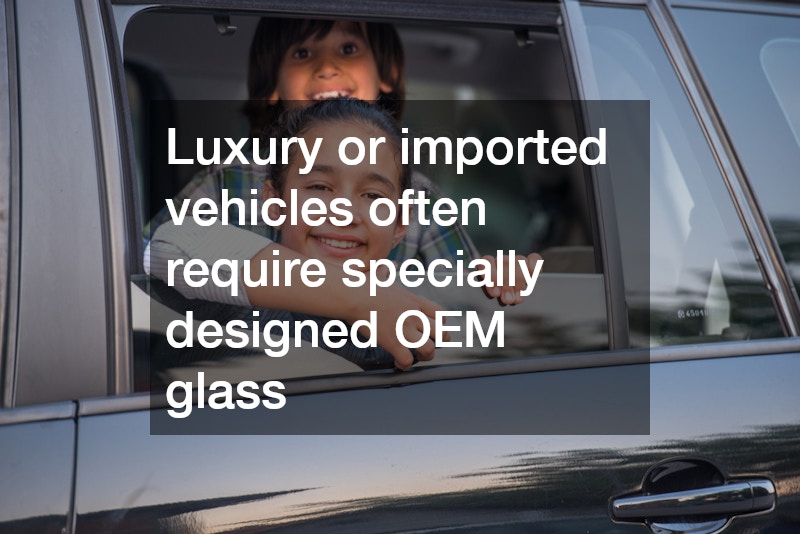Summary
-
Check your insurance coverage first — Know if you have comprehensive or full glass coverage before paying out-of-pocket.
-
Use mobile car window replacement services when practical — They offer convenience and may cost less, especially for standard repairs.
-
Compare quotes from multiple providers — Prices vary widely; always ask about mobile service fees, glass type, and warranties.
-
Pay out-of-pocket if it’s cheaper than your deductible — Especially if it avoids filing a claim that could raise your premium.
-
Fix chips early to avoid full replacements — Mobile car glass repair techs can often handle these quickly and affordably.
-
Use discounts, memberships, or assistance programs — Ask about deals through AAA, insurance partners, or local aid services.

Replacing a car window can be an inconvenient and unexpectedly expensive event. Whether it’s a cracked windshield, a shattered side window, or a broken rear pane, many drivers are surprised by the repair bill. Depending on your vehicle and the type of damage, car window replacement can cost anywhere from $150 to over $1,000. For budget-conscious car owners, understanding how to reduce these costs is key.
This guide provides practical strategies for minimizing out-of-pocket expenses on car window replacement, with detailed discussions around insurance, choosing between mobile auto glass repair and in-shop services, and other smart money-saving decisions.
Understanding the Real Costs of Car Window Replacement
The cost of replacing a car window varies significantly based on multiple factors. These must be understood to better estimate your expenses and evaluate your options.
- Type of window:
- Windshields are typically the most expensive due to their size, complexity, and the visibility standards they must meet.
- Side windows are smaller and generally cheaper, but may still incur additional costs depending on power mechanisms or tinting.
- Rear windows often come with defrosters and integrated antennas, which increases the cost of materials and labor.
- Vehicle make and model:
- Luxury or imported vehicles often require specially designed OEM (Original Equipment Manufacturer) glass.
- These vehicles may also require calibration or special tools, increasing both labor and part costs.
- Integrated technology:
- Some modern cars include sensors, rain detection systems, automatic defrosting, and driver assistance cameras mounted on the windshield.
- These features make replacements more complex and time-consuming.
- Labor and installation fees:
- Professional installation is critical to ensure safety and prevent leaks, and pricing can vary by region or provider.
Typical replacement costs:
- Windshield: $200 to $500 for standard vehicles; $700 to $1,200+ for high-tech or luxury models
- Side window: $150 to $350
- Rear window: $200 to $450, potentially more if defrosters or embedded electronics are involved
Hidden costs to consider:
- Glass disposal and recycling fees
- Mobile car glass replacement service surcharges, especially for emergency or off-hours requests
- Calibration charges for ADAS (Advanced Driver Assistance Systems), sometimes requiring dealership equipment
Check Your Insurance Coverage First
Before calling a local auto glass repair shop or booking a mobile car replacement service, review your insurance policy. Many drivers forget that window replacement may be covered under their current plan.
Key insurance coverage types:
- Comprehensive coverage:
- Typically covers glass damage resulting from vandalism, theft, falling objects, weather events, and animal collisions.
- This coverage is optional but often bundled in full coverage plans.
- Deductibles:
- Standard deductibles range from $100 to $1,000.
- If the window replacement cost is less than your deductible, you’ll pay out-of-pocket with no insurance contribution.
- Full glass coverage:
- Some insurers offer a specific add-on that covers glass damage with no deductible.
- This rider can be highly beneficial in states with frequent storm or debris-related damage.
- Preferred repair networks:
- Insurers often partner with specific in-shop or mobile car glass replacement service providers.
- Using these partners may offer faster service and waived deductibles.
Insurance steps to follow:
- Review your auto policy details and understand your deductible.
- Contact your insurer before authorizing any repairs.
- Ask if the mobile auto glass service you’re considering is part of the insurer’s network.
- Request confirmation of what costs are covered and what paperwork is needed.
Example scenario: A driver with a $100 deductible and comprehensive insurance experiences a shattered rear window due to a fallen tree limb. The replacement costs $275. The insurer pays $175, and the driver covers the rest. If they had full glass coverage, they could have avoided any personal expense.
Choosing Between Mobile and In-Shop Repair Services
Mobile car window replacement services have grown rapidly in popularity due to convenience, time savings, and potentially lower costs. However, they may not always be the best option, especially for more complex repairs.
Benefits of mobile auto glass replacement services:
- On-location convenience:
- Technicians travel to your home, office, or other location of your choice.
- Saves you the hassle of driving to a shop, especially important if the damage affects visibility or safety.
- Lower operating costs:
- Mobile windshield replacement companies often charge less due to reduced overhead (no shop rent or front-desk staff).
- Quick scheduling and flexible hours:
- Many mobile services offer same-day or next-day availability.
- Weekend or after-hours options may be available for emergencies (though they may come with extra fees).
- Direct billing options:
- Mobile auto glass companies often work directly with insurers.
- Some waive your deductible or offer lower rates if you’re paying out-of-pocket.
Limitations of mobile car window replacement services:
- Limited technical capabilities:
- Recalibrating ADAS systems typically requires a controlled shop environment.
- Mobile services may not handle rare or complex installations (e.g., panoramic glass roofs).
- Weather conditions:
- Services can be delayed or rescheduled in case of rain, snow, or extreme wind.
- Inconsistent quality:
- Not all mobile repair technicians have the same training or certifications.
- Always verify that the company is licensed, insured, and has certified technicians.
When mobile car window repair services are ideal:
- You need fast service for a standard windshield, side, or rear window without ADAS features
- Your insurer approves the mobile glass vendor, or you’re paying out-of-pocket for convenience
- You have limited mobility or cannot drive due to the extent of the damage
When to choose in-shop auto glass repair:
- Windshield replacement involving advanced technology (ADAS, cameras, rain sensors)
- High-end or specialty vehicles requiring manufacturer-specific installation
- Your insurer only covers in-network brick-and-mortar facilities
Compare Quotes and Ask the Right Questions
Even if you plan to use insurance, it’s wise to shop around. Mobile auto glass repair service providers and traditional shops can differ widely in pricing, quality, and service levels.
Key questions to ask any provider:
- Is the quote inclusive of all labor, materials, and taxes?
- Are there additional fees for mobile service, travel distance, or emergency response?
- What type of glass is being used (OEM, aftermarket, recycled)?
- Are the technicians certified by organizations like AGSC or NGA?
- What is the length and coverage of the warranty?
Example quote comparison:
| Provider | Cost | Type of Glass | Service Type | Warranty |
|---|---|---|---|---|
| ABC Auto Glass (in-shop) | $275 | OEM | In-shop only | 12 months |
| QuickFix Mobile Glass | $230 | Aftermarket | Mobile only | Lifetime |
| Budget Auto Glass Mobile | $195 | Recycled OEM | Mobile car repair | 6 months |
Know When to Pay Out-of-Pocket
While using insurance is often the first option drivers consider, there are cases where paying out-of-pocket is smarter.
Situations where paying cash makes sense:
- The cost of the repair is lower than your deductible.
- Filing a claim may raise your premiums, especially if you already have multiple recent claims.
- You’re using a mobile auto glass replacement company that’s out-of-network with your insurer but offers lower rates.
- You want to request recycled or aftermarket parts not covered under your insurance policy.
Tips for reducing out-of-pocket costs:
- Request a discount for paying in cash or upfront.
- Use recycled or used glass for side or rear windows.
- Compare weekend and weekday rates; some providers charge more on weekends.
- Ask if the mobile car window replacement company offers discounts for first-time customers, referrals, or online booking.
Prevent Future Window Damage
Proactively protecting your car windows from future damage can save you hundreds over time. Minor precautions can go a long way in extending the life of your auto glass.
Preventative steps:
- Park in covered areas:
- Use garages or shaded lots to reduce exposure to temperature extremes that stress glass.
- Maintain safe driving distances:
- Stay back from trucks or construction vehicles that can kick up gravel and debris.
- Apply glass protection film:
- After replacing a window, consider using a protective film to guard against minor impacts and UV degradation.
- Fix chips early:
- A chip can often be filled by a mobile car glass repair service in 20–30 minutes for a fraction of the cost of full replacement.
- Avoid slamming doors:
- Forceful closures can stress side windows, especially when there are tiny existing fractures.
Look for Discounts and Assistance Programs
Don’t leave money on the table. There are multiple ways to lower your cost further if you know where to look.
Discount options and programs:
- Auto clubs and affiliations:
- AAA and other roadside assistance memberships often include discounts on windshield and window replacement, including mobile car window services.
- Insurance-sponsored promotions:
- Some insurers work with preferred vendors who offer deductible waivers or reduced rates for policyholders.
- Local government or nonprofit programs:
- In some areas, nonprofits or community aid programs help low-income drivers with essential vehicle repairs.
- Loyalty programs or first-time customer deals:
- Many mobile auto glass companies offer promotional rates or coupons online.
Before scheduling your service:
- Mention any employer, membership, or referral affiliations
- Search for local deals or seasonal offers
- Ask providers if they match competitor prices
A broken car window may seem like an unavoidable hassle, but with the right approach, it doesn’t have to drain your wallet. Understanding your insurance policy, exploring both in-shop and mobile car replacement services, and acting quickly can significantly reduce your costs.
By comparing quotes, using certified mobile car window replacement providers, and practicing preventative care, you protect both your car and your budget. Look for bundled deals, keep an eye out for discounts, and consider adding full glass coverage if you live in an area prone to damage.
The next time your car window cracks or shatters, don’t panic. You have options—and knowledge is your best financial shield. Start by reviewing your insurance, and then build a trusted list of local and mobile auto glass repair services to call when you need them most.
